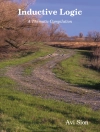Educational change and reform on a larger scale
Bourdieu for Educators: Policy and Practice brings the revolutionary research and thinking of Pierre Bourdieu (1930-2002) of France to public educational leaders in North America, Canada, Australia, and the U.K. This text brings Bourdieu’s work into the arena of elementary and secondary educational reform and change, and offers policy, research, and practice discussions. Authors Fenwick W. English and Cheryl L. Bolton use Bourdieu to challenge the standards movement in different countries, the current vision of effective management, and the open-market notion connecting pay to performance. The text shows that connecting pay to performance won’t improve education for the poorest group of school students in the U.S., Canada, or the U.K., regardless of how much money is spent trying to erase the achievement gap. The authors lay out the bold educational agenda of Pierre Bourdieu by demonstrating that educational preparation must take into account larger socioeconomic-political realities in order for educational change and reform to make an impact.
विषयसूची
Chapter 1: Introducing Pierre Bourdieu to Educational Practitioners
Bourdieu’s Biography
Vielseitigkeit: What is Distinctive About Bourdieu
Understanding the Nature of Pedagogic Work as Political Struggle
The “Culture Wars” in the U.S. and the U.K.: Similarities and Differences
The Battle Over the Correct Academic Subjects and Proper Pedagogic Work
The Concept of Misrecognition and How It Works
Some History with Misrecognition in the Past
Building Awareness of the Forces at Play
Without New Eyes: The Blinders of Doxa as Orthodoxy
Bourdieu as the Public Intellectual, Activist and Provocateur
Chapter 2: Unmasking the School Asymmetry and the Social System
Bourdieusian Cornerstones
Bourdieu’s Concept of Habitus
An Example of Neighborhood Habitus
A Case Study of How Family Habitus Works to Shape Career Aspirations
The Intersection of Class, Social Space and the Field
An Example of a Field with Its Own Logic
The Cultural Arbitrary
The Plight of Minority Children Facing the Dominant Cultural Arbitrary in Schools
How the System Works as a Game
Who Benefits from Schools as They Are?
Illuiso and Unquestioned Loyalty to Continuing Orthodoxies
The Bounded Nature of Choice Within a Designated Social Space
Educational Inequalities Must Remain Unnamed
Connecting the Dots: The Importance of Family in School Success
The Challenge of Reducing Social Inequality as an Educational Goal
Chapter 3: The Curriculum, Qualifications and Life Chances
The Three Forms of Capital
Empirical Validation of the Impact of Social Capital on School Success
The Power of Cultural Capital and Bourdieu’s Own Experience as a Student
Schools as Institutionalized Embodiments of Forms of Cultural Capital
Capital, Power, Symbolic Violence, and Scholastic Habitus
Two Recent Examples of Symbolic Power (Violence) with School Curricula
Social Origin and School Success: Historical and Continuing Evidence of the Linkage Between Them
Academic Failure as the “Fault” of the Student?
Academic Credentials—Essential Capital?
The Hidden Curriculum, Cultural Values and Schooling Success
Calculating Life Chances: The Academic vs. Vocational Education Debate
The Issue of the Mal-Distribution of Opportunity
Chapter 4: The Shifting Control of Leadership Preparation
The Construction of National Leadership Standards in the U.K. and the U.S.
The Major Epistemological Steps Behind National Standards
Core Technologies and the Reification of the Status Quo
The Shifting Nature of the Contestation and Changer in Power in the Education Field
The De-Contextualization of School Leaders via Job Standardization
The Reformers Blinkered Vision for Change: They Just Don’t See It
Chapter 5: A Retrospective Look at Bourdieu’s Impact
The Social Field of Education is Not Static
Education Is Simultaneously a Means and an End
Schooling as the Cultural Arbitrary Demonizes Those who are “Otherized”
The Dominant Consumer Culture in Education Undermines Its Moral and Humanistic Value
Educational Reform Will Always Benefit and Advantage the Reformers
The Dilemma of School Leadership, Agent of the State or of Humanity?
लेखक के बारे में
Cheryl L. Bolton (Ph.D.) is the Academic Group Leader for Lifelong and International Learning in the School of Education at Staffordshire University where she teaches and directs a range of programs including educational research at the masters and doctoral levels. She formerly worked in industry before entering further and then higher education. Her doctoral research involved examining Bourdieu’s key trio of concepts– habitus, capital and field to investigate their influence and impact on instructors in Further Education programs in England. Dr. Bolton’s research has been presented at the British Education Research Association ( BERA); the British Educational Leadership, Management and Administration Society (BELMAS) and the American Education Research Association (AERA).












